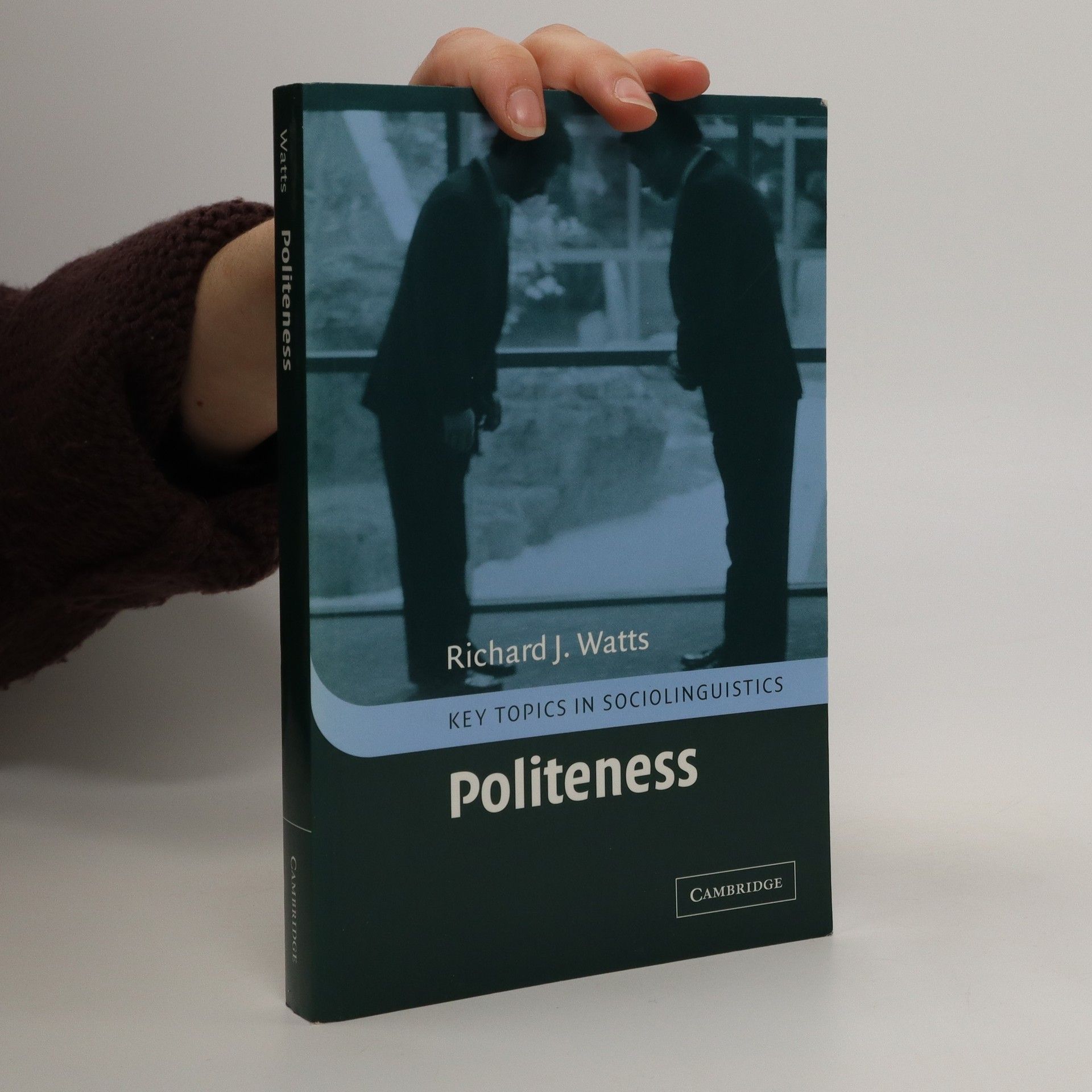The book explores the evolution of language through an interdisciplinary lens, integrating insights from linguistics, archaeology, molecular biology, and other fields. It seeks to align human evolutionary studies with contemporary linguistic theories, crafting a plausible narrative of the emergence and development of human language. The approach emphasizes adaptability, remaining receptive to advancements in both linguistic and non-linguistic research, fostering a comprehensive understanding of language's historical context.
Richard J. Watts Book order (chronological)
January 1, 1943



Politeness
- 318 pages
- 12 hours of reading
During the last fifteen years, existing models of linguistic politeness have generated a huge amount of empirical research. Using a wide range of data from real-life speech situations, this new introduction to politeness breaks away from the limitations of current models and argues that the proper object of study in politeness theory must be commonsense notions of what politeness and impoliteness are. From this, Watts argues, a more appropriate model, one based on Bourdieu's concept of social practice, is developed.
Modes of interpretation
- 221 pages
- 8 hours of reading